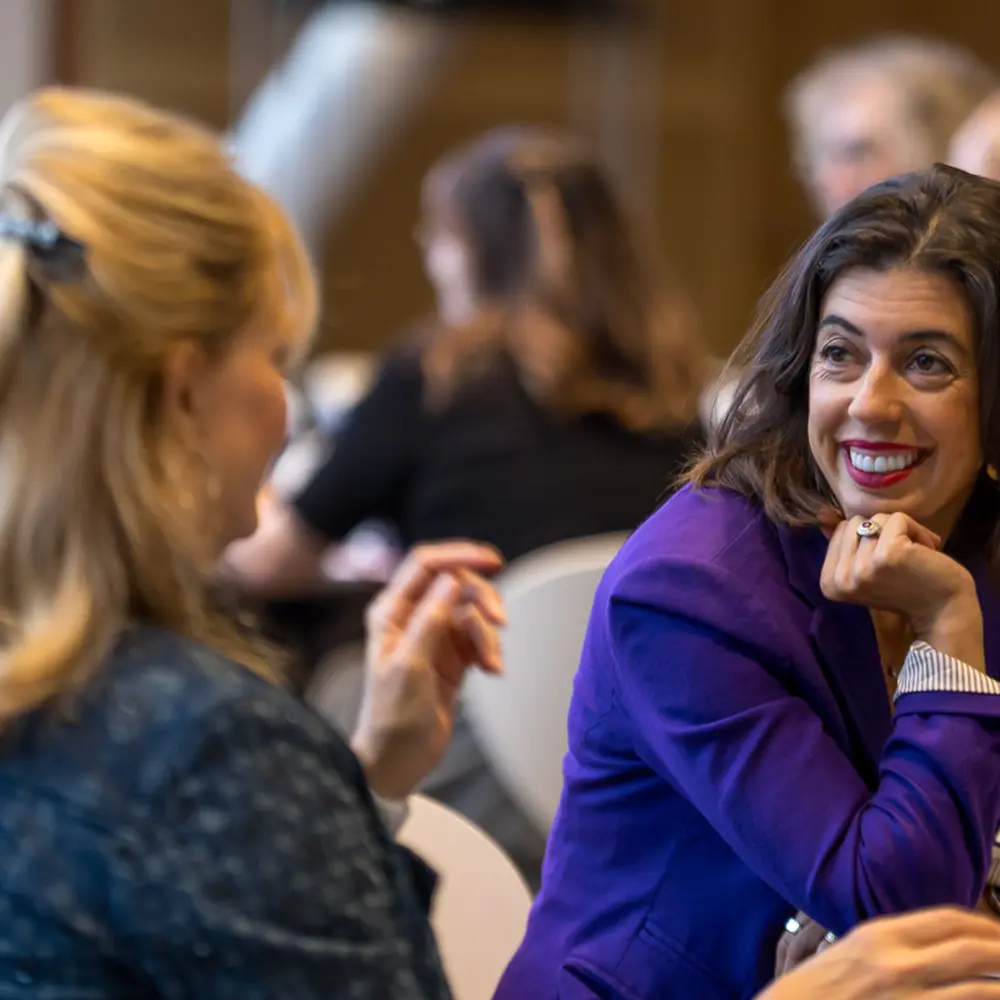How our strategic investments in the sciences are fueling breakthroughs. #
by Moses Lee • May 2017
"A little goes a long way.”
That simple saying captures a core principle of the M.J. Murdock Charitable Trust: philanthropy cannot solve all of society’s ailments, nor should it. But when done with discernment, and in partnership, a small investment can go a long way toward enabling grantees to fulfill their mission.
At the Murdock Trust, we get to witness this transformation every day. In this past year, I have seen grants from the Trust fuel groundbreaking scientific research at colleges, universities and research institutes. Many of our grantees have made important discoveries and produced high-impact publications. They have also garnered major external funding to grow and sustain a research program, train students and advance their own professional growth. This success is common among our grantees, and it is a pleasure to highlight just a few of these accomplishments.
Dr. Tamily Weissman Unni, assistant professor of biology at Lewis and Clark College, received three small grants from the Trust: a New Faculty Start-Up grant and two Life Sciences grants that together totaled $104,000. With this support, she led a team of undergraduate students in researching how the brain develops and in understanding the neural circuitry that underlies human behavior. The work led to her winning a prestigious five-year, $823,000 NSF CAREER award in 2016, which extended her research on brain development, using zebra fish. Dr. Weissman Unni’s group has optimized a technique called “brainbow,” a process by which scientists distinguish neighboring neurons using fluorescent proteins. This allows her research team to better understand how the brain forms during embryogenesis. Dr. Weissman Unni’s work is published in top journals, such as Genetics, Developmental Neurobiology and Nature. As part of her CAREER grant, she will integrate her research into the classes she teaches, enabling her to impact a large number of students.
Dr. Elinor Sullivan is an assistant professor of biology at the University of Portland. She received two Life Sciences grants from the Trust totaling $107,000 to investigate the influence of the metabolic and dietary environment on behavioral regulation. In 2016 Dr. Sullivan led a project in collaboration with researchers at Oregon Health and Science University to win a five-year, $3,700,000 grant from NIH. The grant enabled her and her collaborators to study the impact of maternal obesity and a high-fat diet on the mental health and brain development of offspring, using a non-human primate model. This work is especially relevant given that two-thirds of pregnant women in the United States are overweight or obese. Dr. Sullivan publishes regularly in the Journal of Child Psychology and Psychiatry, Scientific Reports and Obesity.
Dr. John McCutcheon, associate professor of biology at the University of Montana, along with his team of researchers, received a $409,500 grant from the Trust in 2014 to establish a genomics laboratory. In 2016 he won a five-year, $746,300 NSF CAREER award to investigate the origins of mitochondria and chloroplasts and how they integrate with the cells in which they are found. These organelles were bacterial systems that invaded our cells in the ancient past and now reside there permanently. These organelles are vital to sustaining life on this planet. Dr. McCutcheon is interested in learning how and why such symbioses formed, how they are maintained and what happens as the associations become more intertwined. His group regularly publishes in journals such as Science, Proceedings of the National Academy of Science and Current Opinion in Cell Biology. Undergraduates, graduate students and post-doctoral fellows benefit from training and mentoring under Dr. McCutcheon.
Dr. Hugh Hillhouse, Rehnberg professor of chemical engineering at the University of Washington, along with his collaborators, obtained a $514,000 Trust grant in 2012 to set up a facility to fabricate and characterize a new class of thin film photovoltaics, materials that are used to convert light into energy. The ultimate goal of this project is to find better ways to harness solar energy. The facility has generated numerous publications in Advanced Energy Materials, Chemistry of Materials and Journal of Photovoltaics. Additionally, the project has led to the training of more than 20 graduate students (two have completed their Ph.D. degrees) and 10 undergraduates and helped raise an additional $4,370,000 in grants from NSF and the United States Department of Energy.
These examples offer just a glimpse of how Trust grants have enabled researchers to dream bigger and reach higher in their pursuit of groundbreaking discoveries that ultimately serve and benefit society.
However, what excites us most is that this success is not confined to scientific research or reliant upon the type and size of the organization. Leveraging Trust support has greatly benefited a wide range of organizations, including Boys and Girls Clubs, Boy Scouts and Girl Scouts, schools, museums, zoos, summer camps, clinics and hospitals, theaters, art galleries, conservation groups and many others. Our partnerships with these organizations demonstrate that through thoughtful investment with the right partners, modest grants can truly have a huge impact, for any project or organization. A little truly does go a long way!
Moses Lee, Ph.D., is the program director for research and science at the M.J. Murdock Charitable Trust.
The post Small Investment, Big Impact appeared first on M. J. Murdock Charitable Trust.







